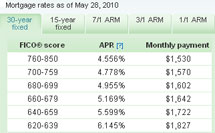Understanding Your Credit (Home Buyer or Not)
- What is credit?
- How do I get credit?
- How can I improve my credit rating?
These are simple questions but many potential home buyers simply don’t know the answers.
What is credit?
Credit represents how much money people are willing to lend you. The technical term for this is borrowing capacity. Borrowing capacity is based on a combination of income, assets, credit rating, history of past credit use and other factors. We have direct control over our income and some expenses, but the urge to buy things we can’t immediately pay for is strong. Managing to keep your expenses lower than your income is the surest way to build up assets and a stronger credit rating.
What is a credit rating?
A FICO score is what most people are really thinking of when they think of credit. Your actual FICO score is based on a complicated formula originally developed by Fair Isaac Company. It’s essentially a summary of your credit history converted into numerical form between 150 and 930 and is used in determining your credit worthiness/risk. The higher the number, the less risk of you defaulting on any mortgage loan given to you and therefore the better chance of being approved for a loan or other form of credit. 
How do I get credit?
Many people have never established a credit history. In some cases they are young people just starting out on their own, or they have just recently relocated from outside the country. In some situations I have witnessed, people who have lived on a cash basis, including owning valuable property, have never bothered to establish credit. Seeing a millionaire being turned away from buying an entry level computer was a vivid demonstration to me of the value of establishing credit early in life. In the example I just gave, having no credit isn’t the same as having bad credit, but can just as easily result in being denied a loan.
This is because there is no easy way to determine what kind of risk you are. The safest course of action would be to deny you credit until your risk level can actually be assessed. In today’s economic climate, banks and other lenders are terrified of making a mistake, and will usually err on the side of caution.
In the last few years of foreclosures, layoffs, and mass unemployment, many people with formerly great credit have suffered major damage to their credit by a foreclosure, short sale, or bankruptcy. In some ways these people are in a better position to re-establish credit if they can point to a specific event that caused their problems. A layoff from a great job, a medical condition that required huge expenses, or some other catastrophic event can help justify what happened. In both situations of no credit or bad credit, you will have to work to get started again.
Don’t panic though; there are some easy ways to establish credit. By getting a low-interest credit card or small installment loan, you can begin to establish a record of good credit behavior by showing an ability and willingness to make regular payments towards the credit granted to you. These initial accounts will likely have very low limits, and you may even be required to bring in a letter from your utility company stating that you pay your bills on time. You may also want to check with your bank to see if they offer a pre-paid credit card. With this type of account, you would deposit money into an account and then make purchases against that balance and be charged interest on a monthly basis. By paying this bill on time, you can begin to establish a good credit history which will ultimately result in a better credit score/rating. The myFICO.com web site is an excellent source for much more detailed credit information.